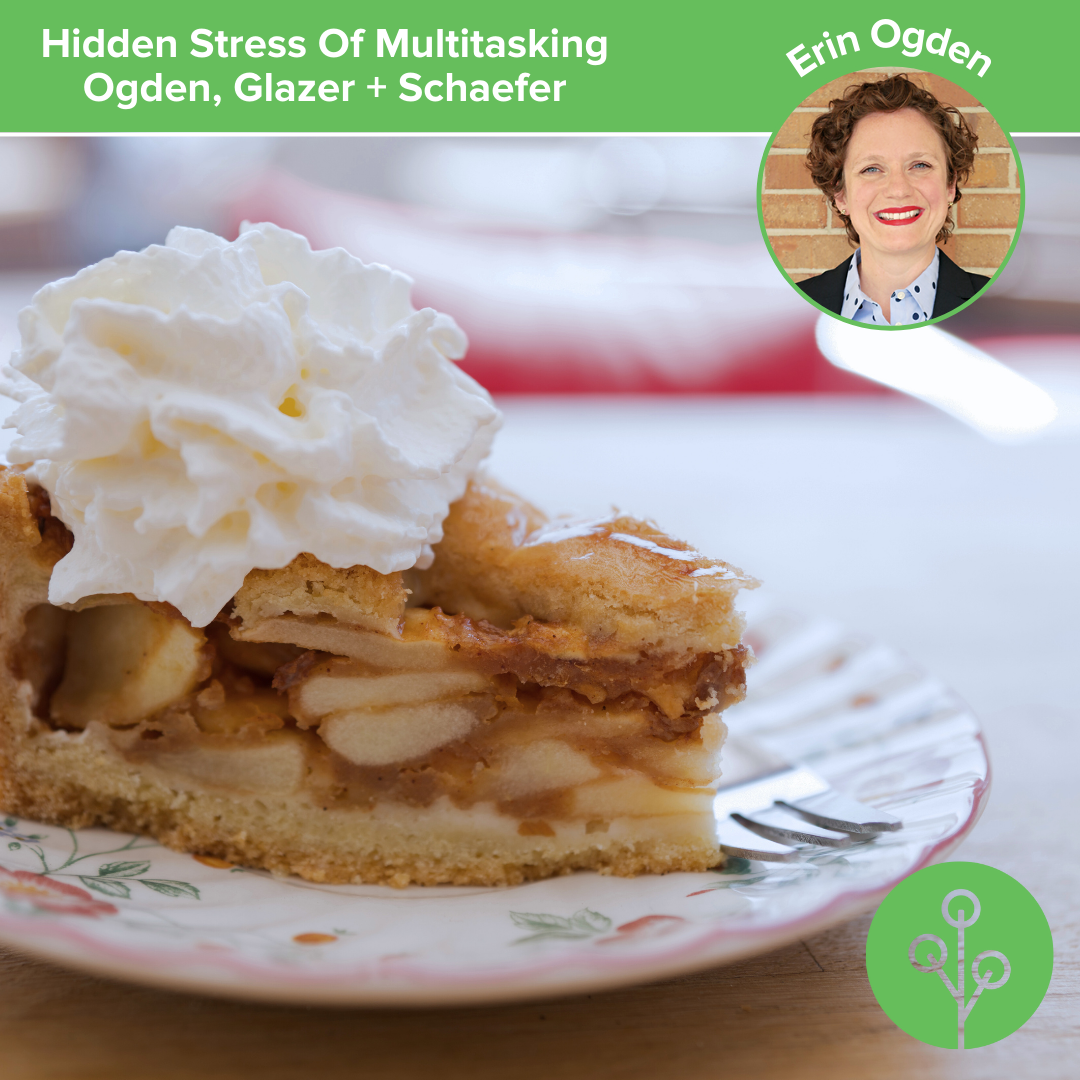[Continuing our theme from last week.]
Another lie is that we can multitask. We’ve all done it; we’ve tried to do two things at once. Reading email while on a phone call, filing documents during a webinar, direct messaging while writing a memo. We think “Look how busy I am! And I got two things done at once!” But what we forget is that it comes at a cost. Studies have shown that found it takes 23 minutes and 15 seconds to get back on track after you’ve been interrupted. And then the work completed may not be up to the level you want it to be.
To quote from the study called The Cost of Interrupted Work: More Speed and Stress, “When people are constantly interrupted, they develop a mode of working faster (and writing less) to compensate for the time they know they will lose by being interrupted. Yet working faster with interruptions has its cost: people in the interrupted conditions experienced a higher workload, more stress, higher frustration, more time pressure, and effort. So interrupted work may be done faster, but at a price.” Ouch. So my work product goes down and my stress goes up? Um, no thanks.
I think the name for it is one many studies use: Fragmented work. Your work, time, and attention are fragmented. Unsurprisingly, that is stressful.
Stress continues to stick around due to phenomena called the Ovsiankina effect and the Zeigarnik effect. The Ovsiankina effect is the tendency to revisit an interrupted action again (and again) when it has still not been achieved until it is completed. The effect states that an interrupted task, even without incentive, is thought of as a “quasi-need”. It creates intrusive thoughts, aimed at leading you to take up the task again (Hey, don’t forget about X. Did you do X? What about X? Ping, ping, ping!).
The Zeigarnik effect is the tendency that people remember unfinished or interrupted tasks better than completed tasks. Incomplete tasks or unresolved questions engage – and often hijack – your attention until they are complete. Once tasks are completed, that “needed” information goes away (like cramming for a test and then not remembering it two days later), and your working memory has room to engage new information.
If you like visuals, think of having a 2×4 board that you want to use to its best purpose (or pie if you are hungry). Each cut takes away some of that valuable resource. The more cuts the less good stuff is available. Distractions will find you on their own. Don’t go looking for them.
The down and dirty is that multitasking adds stress, reduces quality, and often adds time to our tasks. But at least we feel busy? That feeling is not worth the price tag.
More on lies we tell ourselves next week. Thanks for reading, Erin.

